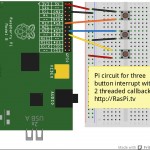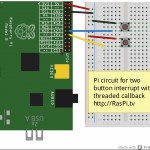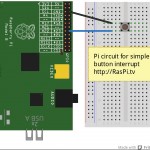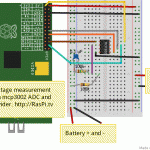
Back in November I made a Raspberry Pi controlled “light and fan relay switching” demo that you may have seen before on the Official Raspberry Pi blog. Before it appeared on the Raspberry Pi web site, I’d previously displayed it at Milton Keynes and Oxford Raspberry Jams and I’d also taken it along to let my year 5 ICT class have a go with it. Did they like it? You can see for yourselves in the video what the year 5s thought of it. I didn’t tell them what was going to happen, as I […more…]







